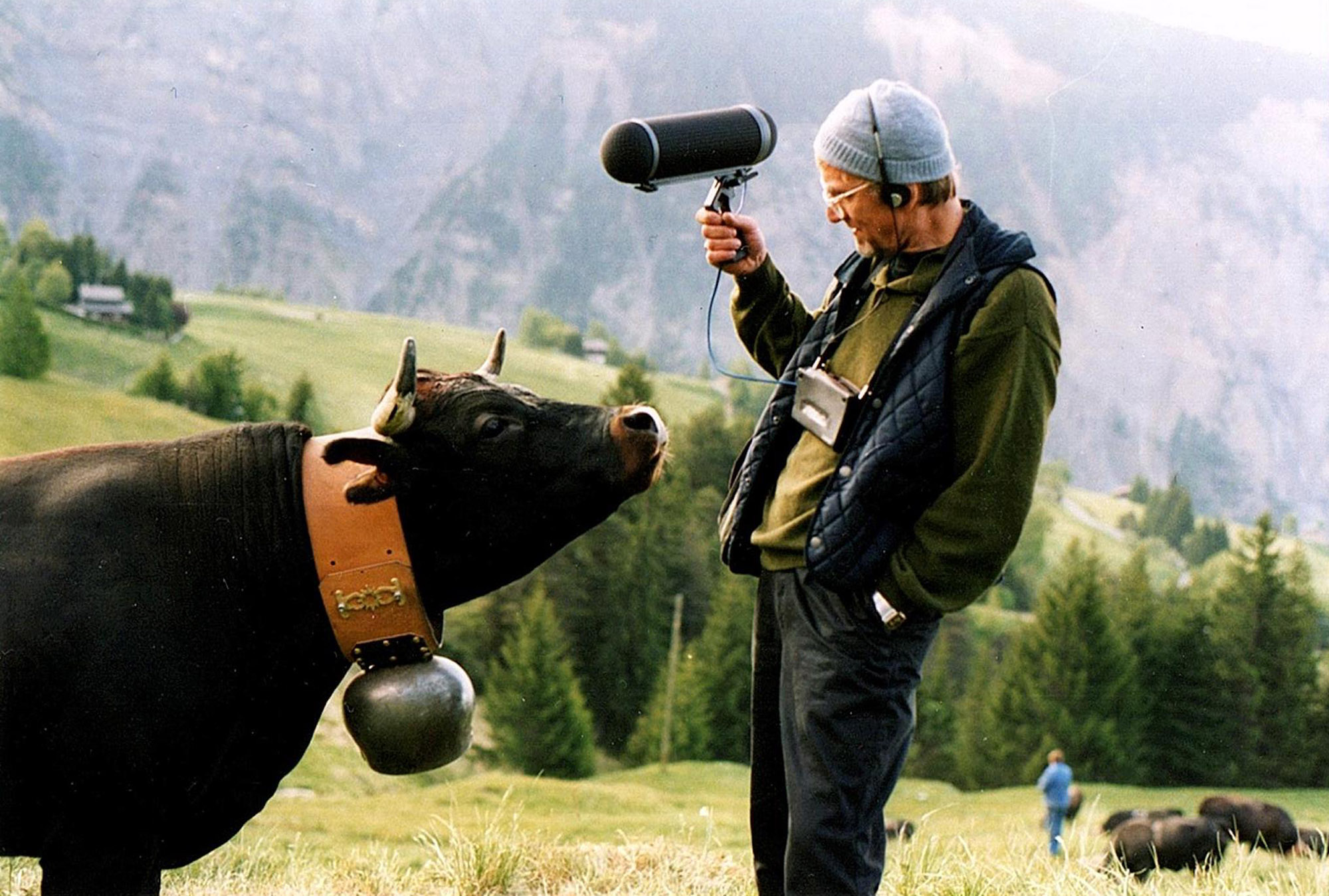Feature Hearing / PRIX EUROPA 2001
(…) SOS — Save Our Souls — The Soul of feature making is what I like to call THE DOCUMENTARY IDEA. Which transformations radio documentary will have to go through in the future — the Documentary Idea must be saved.
The amount of knowledge, that mankind accumulates, is growing with increasing speed. At present it doubles every five years — they say. From an advertisement for IBM-Business-Servers: “In this box there are the answers to all questions you ever had. It contains every invention und every idea, you admired in your lifetime…” And so on. It’s all in the box!
Yes — the feature is under threat. It’s coming from outside, but It’s a homemade threat too. Feature makers as well as station managers and media politicians are bewildered by the expansion of the World Wide Web. There is a vague feeling, that we should cope with the explosion of bits and bites — somehow. But instantly. We just don’t have the tools and the resources. There is panic in the air.
And verily I tell you: Don’t panic.
As we all can watch on the screens of our personal computers: The internet is becoming more and more a warehouse, a dump — stuffed with junk and treasures in complete disorder. It’s a mess. The growth of raw material — of stuff, of things (I don’t call it “information”) — demands the return of the author with competence and authority. It demands the Documentary Idea — or what the documentary film pioneer John Grierson called “The creative treatment of reality”.
Authors are more than just pilots steering a ship. Pilots have been automated in the meantime — and they are doing their job rather well. But those search machines in the www handle all informations equally. We cannot delegate our professional responsibility and passion to searchmachines. They have no warmth, no sensuality, no humour. They don’t learn from experience (yet) and draw no conclusions (yet). They cannot give blood to a subject matter and make it breathe. Evolution — also the technical one — produces everything, that is possible. It’s our job to find out, what’s important for us.
There are more things, computers can’t do: extract the substance, the heart of a matter. Reveal the form / feature in a heap of raw material. Discover concealed or scarcely noticed qualities and beauties of peoples and things. Shrink the world to a manageable size. Translate it. As Friedrich Schiller said about the function of drama: It should “introduce man to man and reveal the mechanism, which makes the world move”.
What can we do ? Some cues:
We should draw the outlines of what we consider to be a radio feature more clear and distinct — the term “feature” being abused for all and anything.
Let’s work strictly listener-oriented — the radio should not talk to itself.
Grab the listener, where he is (That is, maybe, next door).
We must cope with the technical and esthetical standards of the audio industry respectively the music production (listeners are used to it).
On the field of audio production and aesthetics feature makers should be more competent than their colleagues in any other department of the station.
The centre of our efforts should be the “major radio feature” — that is the outstanding radio event, the excellent treatment of an important or “hot” issue, well placed in the overall composition of the programme. Listeners must be attracted by subjects of universal interest. By exceptional, unusual ideas. By visions, provocations. Intellectual events.
Topic + personality + competence might be formula to rescue feature from decline — from shipwreck.
This type of programme deserves appropriate publicity, for example by cross-promotion in other programmes of the radio station and in other media.
Major Features — the “big form” — must be supported by the political class. Documentaries deserve the framework of public radio — like demanding stage productions need the conditions and the support of subsidized theatres and opera houses.
That also means: to accept feature to be a minority programme (positively spoken: a programme made for opinion leaders and multipliers — a “relevant minority”, as Octavio Paz used to call the readers of poetry). Feature programmes are not made for the community of radio-zappers. The interest of our listeners is conditional for our right to exist. (But that doesn’t mean, that a minority must be very small and not able to grow!)
Last but not least: Every genre depends on the ability to develop, to change if necessary. The last major renewal of radio documentary, the invention of the Acoustic Feature (Berlin style), happened more than 30 years ago. Now we must react on the challenges of the new century with new convincing and rewarding designs.
We should not change horses, as long as they are running well — but it’s indispensable to join those, who decide on the future racecourse. That means: simultaneously to promote grandpa’s radio and to exercise on the playgrounds of multimedia.
However — we shouldn’t believe, that in our stations future has already begun. People in charge love to talk about World Wide Web, but only few of them know what they are talking about — suppressing the fact, that web appearances cost a lot of money and even might cost them their jobs. Those colleagues, who torment themselves as web pioneers within the framework of public radio, can tell you a thing or two about it. In their present condition, most of the public radios seem to be unable and unqualified, to get something moving in the right direction.
And — it is sad to say: If the steamer is not manoeuvrable anymore, it doesn’t matter how beautiful the band plays on board.
© Alle Rechte beim Verfasser
